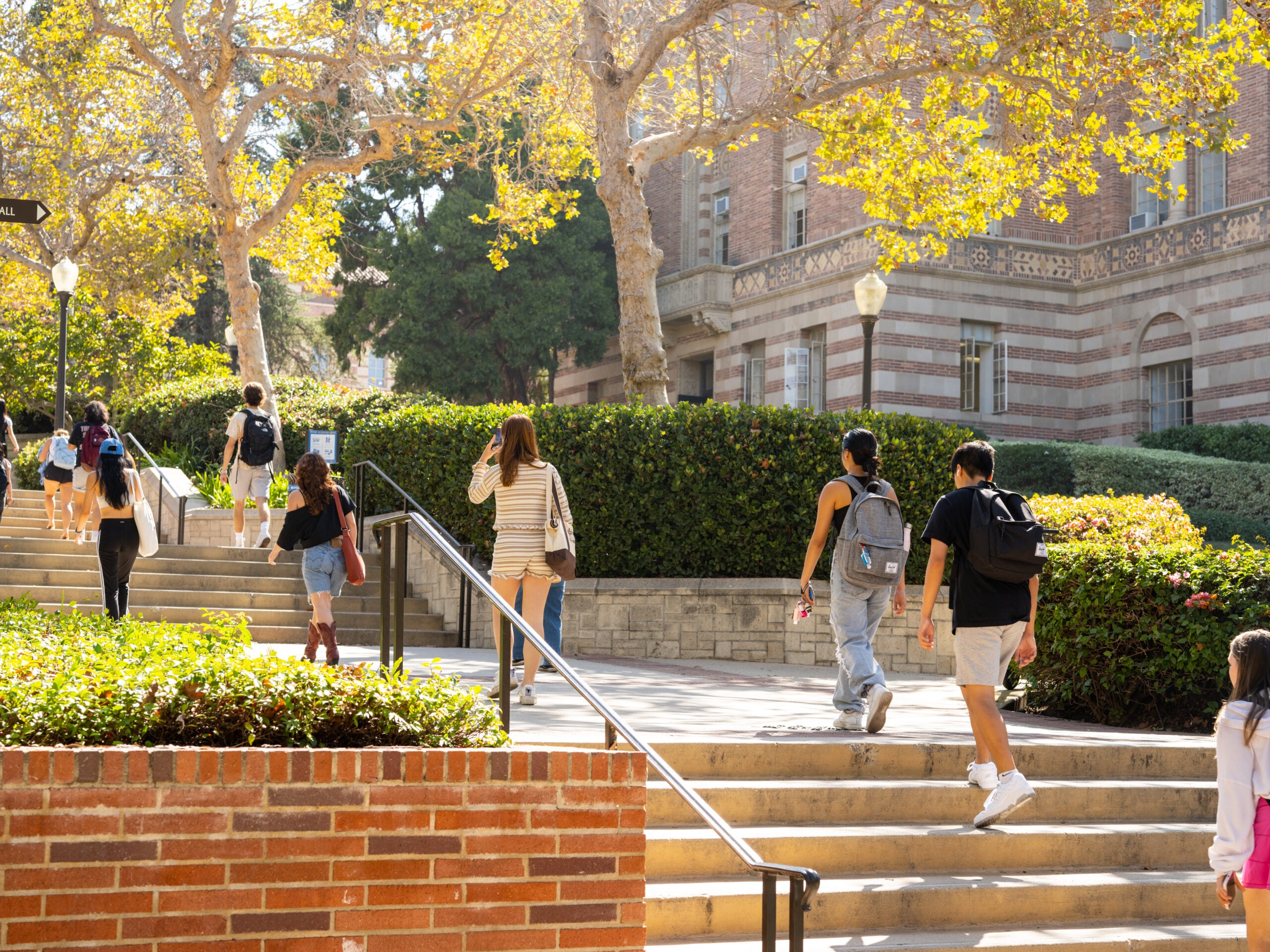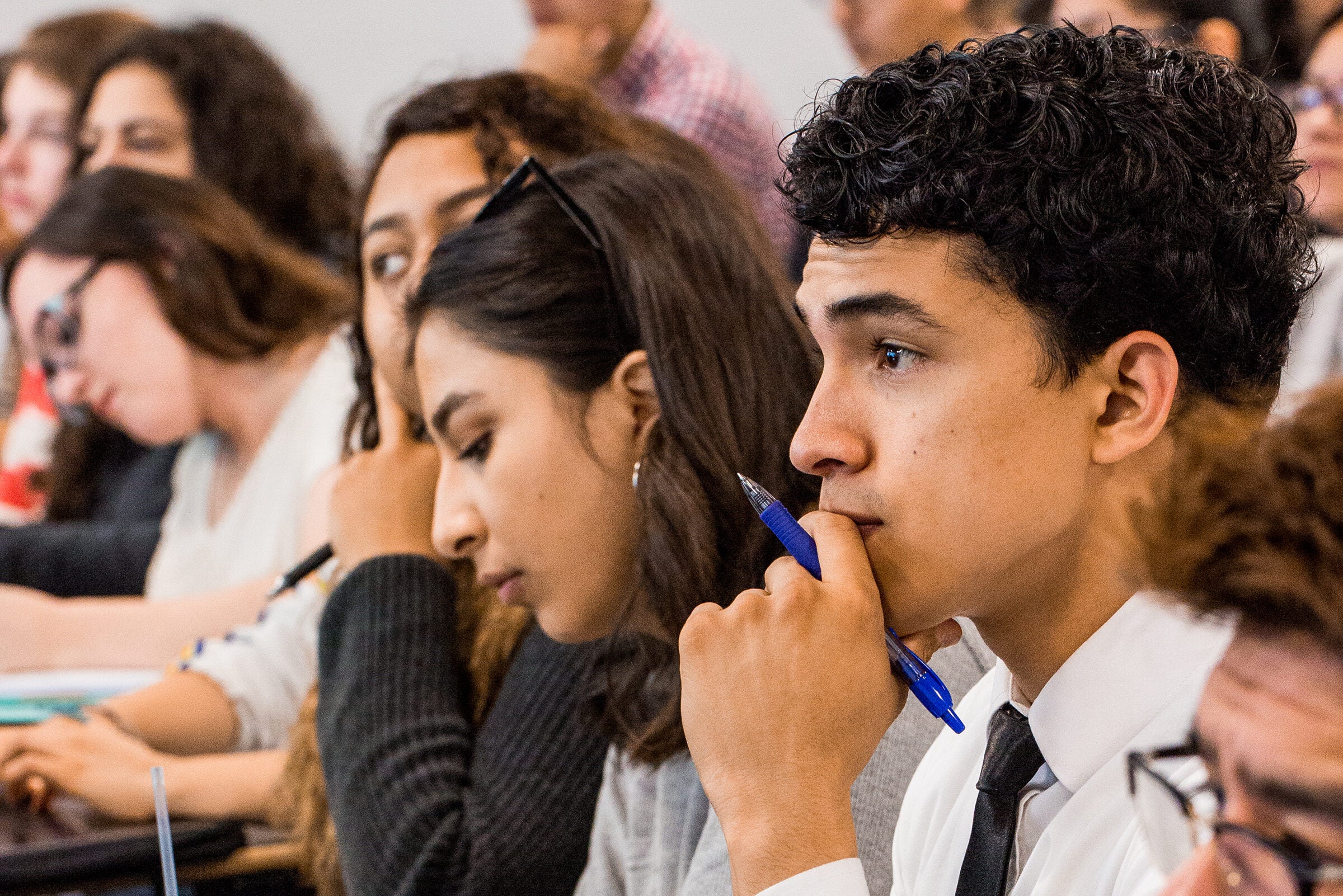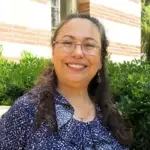Student Affairs Program (M.Ed.)
In the Student Affairs program, students experience the challenges and opportunities of a world-class research university. The program meets the important need of preparing student affairs professionals for positions in public and private colleges and universities as well as community colleges. The program is designed for students whose primary career interest is in student affairs in institutions of higher education. The Student Affairs program is a one-year cohort-based M.Ed. (scholar-practitioner focused) housed within the Higher Education and Organizational Change (HEOC) graduate division. The program is offered as a collaboration between UCLA Ed&IS and the UCLA Division of Student Affairs.
Academic Information
The Student Affairs program concentrates on theory, practice, and research in Student Affairs in postsecondary education. The Master of Education in Student Affairs is designed to provide early-career professionals with knowledge, skills, and a social justice perspective in the areas of student development theory, foundations of higher education, student affairs administration, research, and assessment.
Students attend classes as a cohort on a full-time basis within a supportive and rigorous environment and participate in three quarters of directed internship. Classes are taught by HEOC faculty and Student Affairs professionals, many of whom are renowned scholars and national leaders in the field. Through guest presentations and experiential works, students meet with and learn from outstanding Student Affairs professionals from UCLA and neighboring institutions.
One-year degree program that meets national standards for student affairs professional preparation: The MSA program is an intensive four-quarter (11-month) graduate program that begins in early August and concludes mid-June. The MSA curriculum meets the professional preparation program standards established by the American College Personnel Association’s (ACPA) Professional Preparation Commission.
- Emphasis on social justice education and transformative student affairs practice: The MSA community and curriculum prioritize the design and facilitation of democratic and empowering educational opportunities that foster understanding and respect for diversity and cultivate the active engagement of others (students, faculty, colleagues) in social change. Upon completion of the program, graduates are able to demonstrate a critical understanding of higher education and the student affairs profession and their role in promoting social justice.
- Commitment to cultivating scholar practitioners: Engagement in the intellectually rigorous and practice-oriented MSA curriculum facilitates the development of student affairs scholar-practitioners capable of translating theory and research to practice as well as contributing to the expansion of existing knowledge about the student experience, the college environment, and student outcomes.
- Three-quarter paid internship: The MSA internship is a three-quarter supervised professional practice experience that provides students with an opportunity to develop firsthand knowledge of student affairs professional roles and responsibilities, gain significant hands-on experience in program development and/or student affairs administration, and receive valuable feedback on the development and demonstration of essential professional skills. The internship is a paid experiential learning opportunity. Students receive a salary as well as financial support to attend one regional or national professional conference.
In the Student Affairs program, students experience the challenges and opportunities of a world-class research university. The program meets the important need of preparing student affairs professionals for positions in public and private colleges and universities as well as community colleges.
The program is designed for students whose primary career interest is in student affairs in institutions of higher education. The Student Affairs program is a one-year cohort-based M.Ed. (scholar-practitioner focused). The program is offered as a collaboration between UCLA Ed&IS and the UCLA Division of Student Affairs.
Learning Outcomes
Graduates should be able to:
1. Advance the full and equal participation of all groups in the university community and society, where individuals are safe, self-determining and interdependent.
2. Design democratic and empowering educational programs and learning environments that foster understanding and respect for diversity and cultivate the active engagement of others (students, faculty, colleagues) in social change.
3. Design, conduct, and/or interpret institutional assessment activities that examine all forms of discrimination and use these research findings to inform professional practice.
4. Demonstrate a critical understanding of higher education and the student affairs profession and their role in promoting social justice.
5. Embrace individual and organizational conflict as opportunities to transform the academic community through the identification and resolution of pressing institutional and social problems.
Graduates should be able to:
1. Reference historical and current documents that frame the philosophical foundations of the profession and communicate their relevance to current student affairs practice.
2. Articulate the inherent values of the student affairs profession as stipulated in key professional documents in a manner that indicates how these values guide practice.
3. Demonstrate an understanding of the role of student affairs and its functions within higher education.
4. Demonstrate knowledge about and the ability to apply a code of ethics or ethical principles sanctioned by student affairs professional organizations such as the American College Personnel Association (ACPA) and the National Association of Student Personnel Administrators (NASPA).
5. Articulate the role and value of multiculturalism in the student affairs profession and apply multicultural theories in professional practice.
Graduates should be able to:
1. Demonstrate an understanding of and the ability to apply theories of intellectual, moral, identity, psychosocial, career, and spiritual development within the context of a multicultural campus and/or society; the intersection of multiple identities; and learning styles throughout the late adolescent and adult lifespan.
2. Demonstrate the ability to assess the learning and developmental needs of students across all college-going age groups.
3. Demonstrate the ability to create learning and developmental opportunities informed by relevant theories.
4. Demonstrate knowledge of the differential strengths and applications of student theories relative to student age, gender, ethnicity, race, culture, sexual identity, disability, spirituality, national origin, socioeconomic status, and resident/commuter status.
Graduates should be able to:
1. Demonstrate knowledge of how student learning and learning opportunities are influenced by student characteristics and by collegiate environments.
2. Apply knowledge of student characteristics in the design and evaluation of student learning experiences.
3. Understand the complexity and diversity of curricula and co-curricular learning environments.
Graduates should be able to:
1. Design and evaluate effective educational interventions for individuals and groups.
2. Demonstrate knowledge and skills in interpersonal and group communication that reflect a commitment to multiculturalism and the ability to communicate with diverse audiences.
3. Demonstrate the interpersonal skills essential for addressing individually, as well as collaboratively, crisis and conflict resolution situations.
4. Recognize student leadership and group development issues and effectively utilize methods of intergroup relations to promote student learning and success.
5. Demonstrate an understanding of the current issues affecting students’ ability to achieve and provide both advocacy and intervention skills as necessary for the situation.
Graduates should be able to:
1. Identify and apply leadership, organizational, and management practices that assist institutions in accomplishing their mission.
2. Demonstrate the knowledge and skills essential for working and leading in a multicultural environment.
3. Actively participate in the processes of planning, budgeting and fiscal management, assessing outcomes, and coordinating campus and community relations.
4. Create opportunities for collaboration of appropriate departments, understand and mitigate as needed the interactions of student affairs staff, and model the qualities of a student affairs leader.
Graduates should be able to:
1. Demonstrate knowledge of basic quantitative and qualitative methods used in the study of student learning and development.
2. Demonstrate knowledge of student learning and outcome assessment models, environmental and organizational assessment techniques, and program evaluation.
3. Read and critique research that informs the field of student affairs.
4. Demonstrate ability to use assessment, evaluation, and research data to inform practice and administrative decisions.
5. Design and conduct a research study, assessment study, or program evaluation, and be able to effectively communicate the results of the study using a variety of media (e.g., written, oral, electronic).
Graduate students at UCLA Department of Education benefit from—and contribute to—the resources of the country’s number one public graduate school of education.
A distinguished faculty committed to research and teaching and excellent research centers and institutes offer extraordinary opportunities for graduate endeavors. We are preparing the next generation of researchers and professionals to address some of the most pressing challenges in the field.
Learn how the Student Affairs program could be the right fit for you.
The UCLA Ed & IS Office of Student Services looks forward to assisting you through the application process. If we can be of service to you in any step of this process, please feel free to contact any one of our advisors.
Contact Us
Faculty Director
Linda Sax
lsax@ucla.edu
(310) 206-5875
Program Co-Director
Christine Wilson
Program Graduate Advisor
Amy Gershon
gershon@seis.ucla.edu
(310) 206-1685
Professional and Career Development Coordinator
Rick Wan, M.S.
rwan@saonet.ucla.edu
(310) 893.9780





